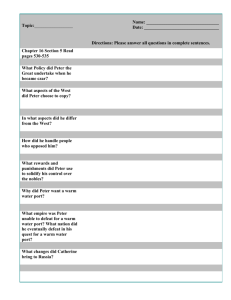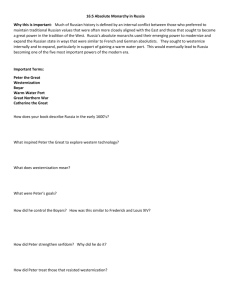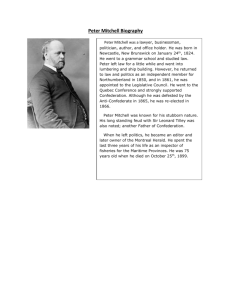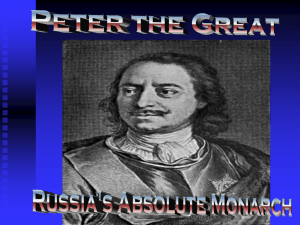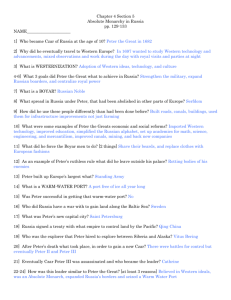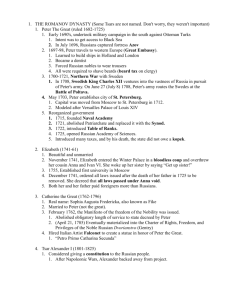Peter the Great - euro
advertisement
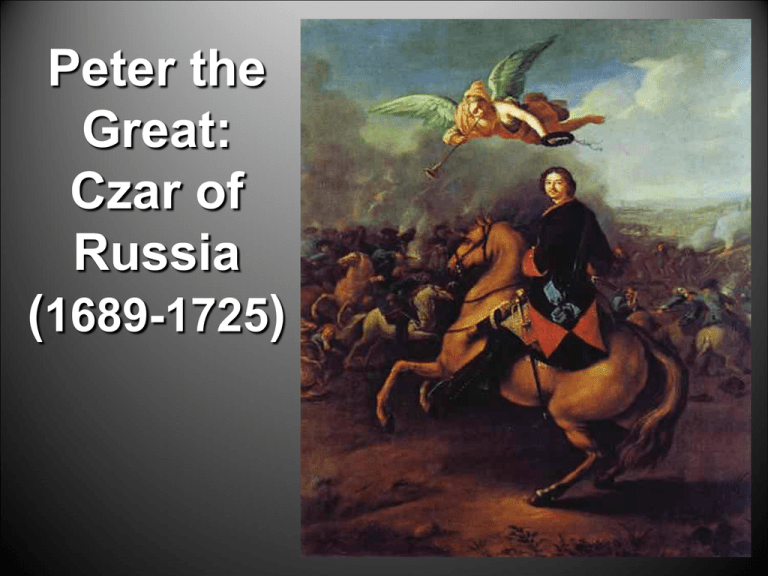
Peter the Great: Czar of Russia (1689-1725) Personality: • Belching Contests • Crude Jokes • Comical Funerals • Vicious Punishments Peter was determined to westernize Russia with technology to build up his army and navy with the purpose of winning military victories. Peter conscripted peasants for 25 years of military service and was credited with forming the first Russian navy. Central Government: Senate created to supervise administrative departments Russia divided into 8 provinces, later 50 Hoped for a sense of honest civic duty in bureaucrats Written to an administrator: “According to these orders act, act, act. I won’t write more, but you will pay with your head if you interpret orders again.” Response to cautious interpretations of his orders: “This is as if a servant, seeing his master drowning, would not save him until he had satisfied himself as to whether it was written down in his contract that he should pull him out of the water.” Peter clearly made impossible demands on his officials to be simultaneously slaves and independent men. Peter required that all the landholding class serve in military or civil offices. His Table of Ranks made each work his way up the ladder via merit. Peter imposed state control over the Russian Orthodox Church in 1721. He abolished the position of patriarch and created a Holy Synod to make decisions for the church. Peter introduced Western customs, practices, and manners into Russia In the first Russian book of etiquette to teach Western manners, it was pointed out that it was not polite to spit on the floor or scratch one’s self at dinner. The Western nobility did not wear beards or the traditional longskirted coat. Peter ordered the beards to be shaven and the coats to be shortened. Peter personally shaved the beards and coats of his nobles at court with his own hands. Barbers and tailors were placed at town gates and did the same. Failure to cooperate resulted in being “beaten without mercy.” Women benefited from Peter’s Western influence. They could mix at social gatherings with men and he insisted they could marry of their own free will. Peter ordered the construction of St. Petersburg in 1703. It was considered his “window to the West.” It cost the lives of thousands of peasants. The Peterhof Palace entrance Interior view of the Peterhof By Peter the Great’s death in 1725, Russia had become a great military power and an important member of the European state system.
